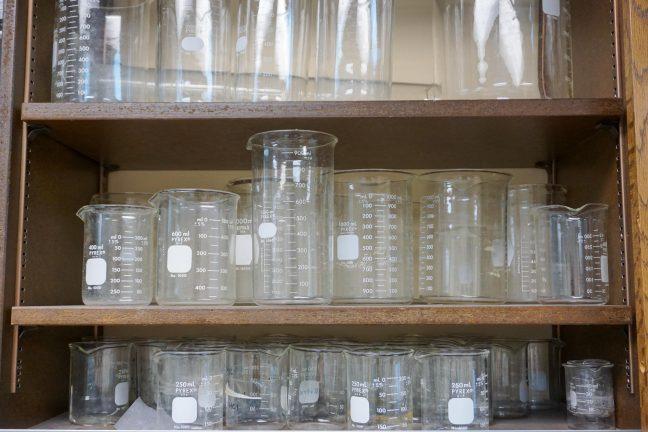A 2014 research study used Facebook data on otherwise uninformed and unknowing users to analyze mood changes. The study entailed altering users’ feeds with either optimistic or pessimistic content to study whether “emotional contagion,” or the transfer of similar emotional states between people, was possible through social media.
Though the study was legal according to Facebook’s terms and conditions, which specify that user data may be relinquished for research, participants who could not express consent for the study and researchers call it unethical.
Vice Chancellor for research policy and integrity in UW’s Office of Research and Graduate Education Brian Fox said scientific investigation at its core requires integrity.
“Ethics means that you’re carrying out research in a fair, open, transparent way so everyone can understand what you are doing,” Fox said. “You’re following protocols that are inherent in the design of experiments and represent best practice for working with living creatures.”
UW Zoological Museum preserves over half a million animal specimens for research, education
University of Wisconsin Vice Chair of the Institutional Review Board and director of animal research Michelle Ciucci said ethics are at the center of research and research policy and compliance.
Ciucci said the risk-to-benefit ratio is a good indicator of the ethics of a study. For example, an experimental cancer drug would benefit patients by slowing or eliminating the cancer. The risk, however, would be unknown side effects. Researchers must ensure patients fully understand the risk-to-benefit ratio.
Other times, the benefit can even extend past a certain individual.
A risk of getting an MRI, for instance, can be discomfort in a patient, Ciucci said. Directly, the individual might not benefit, but overall it benefits everybody in that researchers can apply the knowledge gained from the MRI to other areas in language processing and engage in treatment.
“Not all research directly benefits that individual necessarily, but there is a benefit to our science and our knowledge base,” Ciucci said
Deer research programs at UW highlight Wisconsin idea in action
Determining if a study is ethical or not involves assessing whether the benefits outweigh the risks, Ciucci said. In cases with little to no benefit to society or the individual compared to the risks, the research would not be approved.
Since the findings of a study ultimately rely on the participants, they must express informed consent first, which is the crucial aspect of developing and carrying out an experiment the Facebook emotional contagion study neglected.
Ciucci said there is a history of failing to inform participants appropriately and gain their consent prior to implementing the experiment, especially on marginalized populations. Because of this, after intensive investigation, one of the biggest milestones for research ethics was produced in 1974 — The Belmont Report, which Ciucci regarded as the “cornerstone of modern human subjects research.”
Three aspects guide the report — respect for individuals, beneficence and justice. These three aspects together help unite and guide research happening everywhere in a growing society under rules, regulations and required training, Ciucci said.
“We know that not everybody is seen as equal in society, and we have huge problems with diversity, equity and inclusion, so something that we’re really paying attention to now in all research is our consenting process,” Ciucci said.
From Sheldon to Shuri: Changing portrayals of scientists in media
But as society evolves, what experts consider ethical today may not be the same years from now, Ciucci said.
Constant reexamination and oversight of ethics by those like Ciucci help maintain an up-to-date code of ethics for both human and animal research. In reviewing animal research ethics, for example, Ciucci said the oversight process always involves related experts or scientists, such as veterinarians, veterinary technicians and other scientists.
Ethics always includes a non-scientist member of the public who the research doesn’t necessarily concern but wants to ensure the research is done ethically, Ciucci said. This non-scientist reviews the research alongside scientific experts on every panel, instating the checks and balances system of ethics.
Fox said having this transparency between those involved with research and the public fosters confidence in the scientific enterprise.
Without ethics, it would be all too easy to have results compromised or tainted by misconduct, improper reporting or conflicts of interest, causing science to struggle in the sense that it would be built on false premises and indefensible starting points, Fox said.
UW researchers show COVID-19 preprint data remains largely unchanged after peer review
Additionally, it is often the case that researchers conduct human and animal research only when there are no appropriately rigorous alternatives. In animal research but also applicable to human research, the three R’s call to refine, reduce and replace.
One of the ways to avoid the rise of ethical problems, Fox said, is through anticipation of situations such as authorship disputes, especially in circumstances that don’t involve misconduct, cheating or falsifying information.
“I always recommend people start discussing this early,” Fox said. “Who’s going to be contributing? Have it all out in the open. Don’t make any [hidden] decisions or at the last minute without consultation. That’s the best way to hope to avoid a misunderstanding and later problems.”
Journalists vs fake news: How Michael Wagner battles misinformation
Ethics, though not referenced often in research papers or publications, are a major component of any experiment’s development and at the heart of all research, Ciucci and Fox said. Anyone can be responsible for it, too.
“There is ongoing training and oversight for ethical and responsible conduct of research, including undergraduate students, graduate students, research staff and professors,” Ciucci said. “It starts with the individual and then it’s built into these bigger systems. Our researchers are incredibly dedicated, and we have a very strong commitment to ethical and responsible conduct of research.”


















